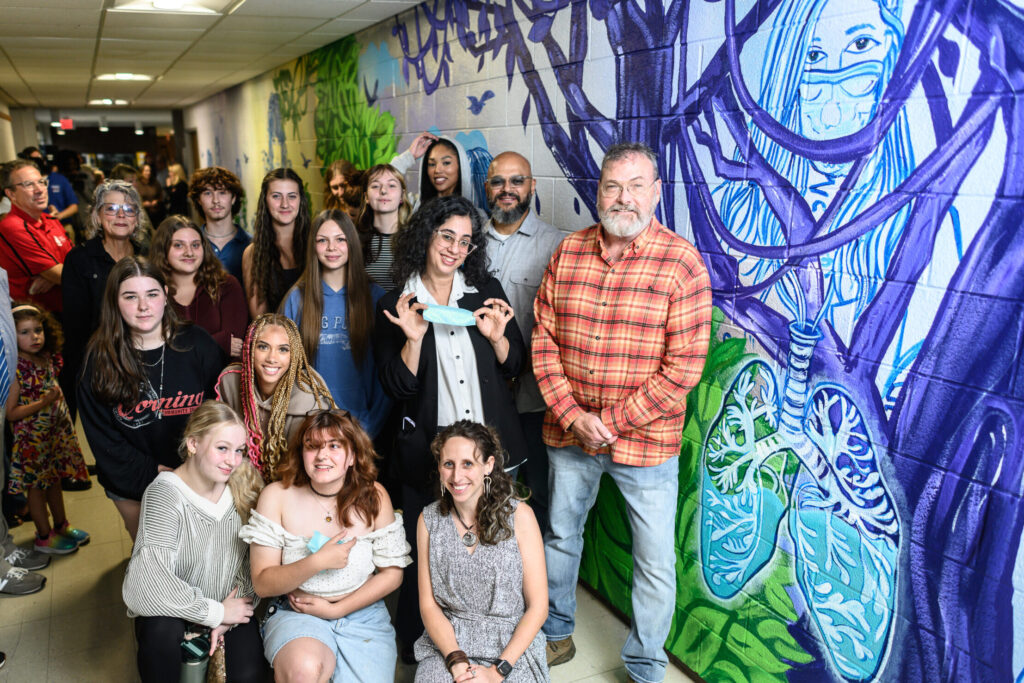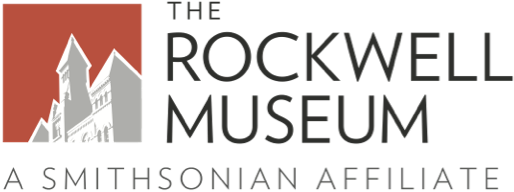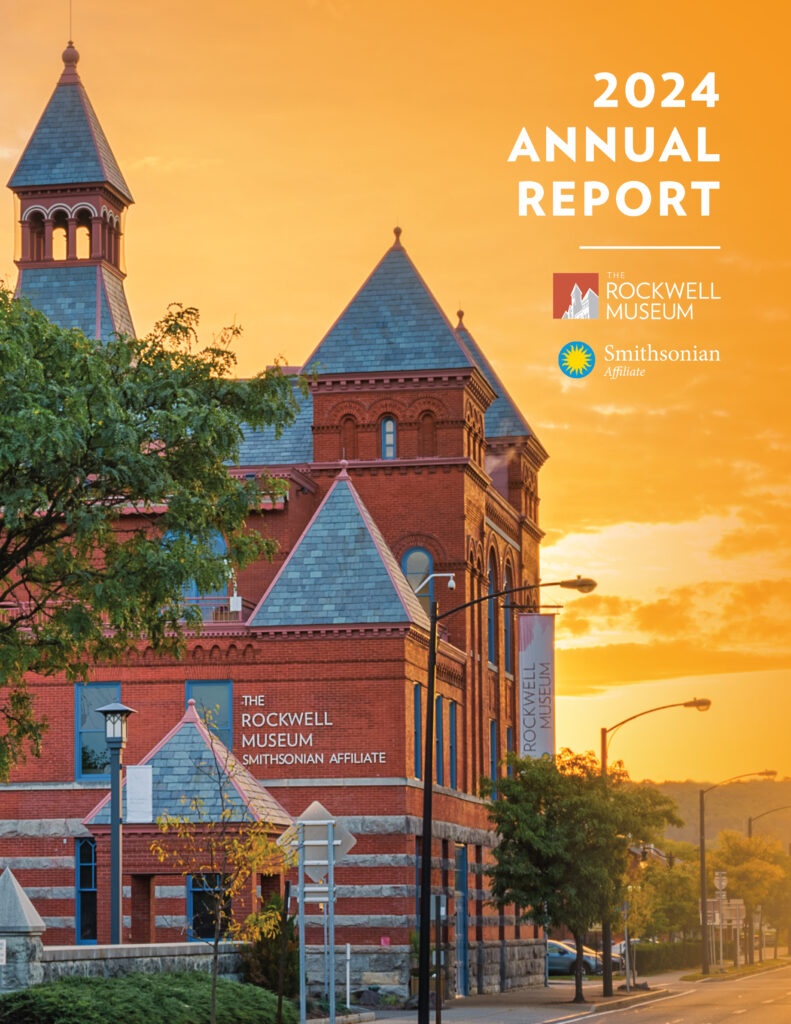Organizational Values
As a twenty-first century museum, The Rockwell Museum adheres to the norms of good governance including transparency, ethical stewardship, professionalism, and accountability to our community and stakeholders. The values that express our beliefs and guide our work are…
- People. The Rockwell centers the individual in its experiences, exhibitions, programming, meetings, and engagements as our visitors, team members, volunteers, board and community are essential to everything we do.
- Progress. The Rockwell employs its resources, position and programming as a force for good to improve mutual understanding, heighten empathy in our society, encourage a supportive environment and nurture connections between people.
- Collaboration. The Rockwell embraces intentional and holistic collaborations and partnerships that strengthen the work of the Museum, enhance experiences and expand the possibilities of a museum focused on social impact.
- Experimentation. The Rockwell believes in the power of experimentation, its successes and failures, to further the vision of the organization and deepen the connection to its programs, exhibitions, events and interpretation.
- Zest. The Rockwell appreciates playful and unexpected approaches to language, design, interpretation, communications and organization which refresh, revitalize and enrich the museum experience.
JEDAI Pillars
The Rockwell JEDAI Interdepartmental Team, formed in 2020, aims to guide The Rockwell Museum with courage and transparency to be a welcoming and inclusive place for all people by providing ongoing education, direction, implementation, and evaluation relevant to justice, equity, diversity, accessibility, and inclusion.
Each JEDAI Pillar outlined here is intended to organize the Museum’s priorities, successes, experiments, and goals. These guiding questions are applied to our day-to-day work and big-picture strategic planning alike, holding ourselves and the organization accountable to JEDAI principles.
Art & Programs
The Rockwell Museum is gradually and consistently acquiring new works to diversify its permanent collection. Traveling exhibitions, loans and programming are selected to immediately impact the diverse stories we tell at the Museum. Partnerships with individual artists and national organizations boost the Museum’s efforts and expand our network to make waves.
Focus Areas
• Collection diversification and decolonization
• Diverse exhibitions
• Events and programs
Guiding Questions
• Are we diversifying our collections and exhibitions to better represent the American Experience and showcase a multitude of identities and perspectives?
• Are the art and programs relevant–relatable, connected to current events and issues that impact people’s lives?
• Are the art and programs broadening the Museum’s reach to new audiences?
• What voices are missing in our programming and community partnerships? Can we add them?
Space & Place
The Museum is committed to continuous improvement of its spaces, accommodations, messages, and hospitality offerings from a JEDAI lens. This extends beyond the walls through digital platforms and communications. We strive for consistent representation of the Museum’s welcoming stance before, during, and after an encounter, from marketing materials to planning and experiencing a visit.
Focus Areas
• Accessibility in physical spaces
• Communications and media planning
• Social Media
Guiding Questions
• Is the Museum a space focused on justice, equity, diversity, accessibility and inclusivity?
• Are we actively creating a welcoming space for everyone?
• Do we make the Museum more accessible, inclusive, and welcoming for our visitors and staff?
• How is our commitment to creating a welcoming place communicated with visitors, community, stakeholders, members and students?
Community Engagement
JEDAI principles sparked new and exciting collaborations, with accessibility and diversity at the forefront. We offer initiatives to make the Museum’s spaces and collection more accessible and inclusive to visitors.
Focus Areas
• Responsive Education Initiatives
• Partnerships with Cultural Organizations
• Living Artists
Guiding Questions
• Are we working with our community partners to reach out and make community connections?
• How is our work connected more broadly with our community and region?
• Are we cultivating partnerships with civic, cultural, and educational institutions to build our audience?
• Have we cultivated partnerships with civic, cultural, and educational institutions to develop programs addressing equity and inclusion in the arts?
• Are we prioritizing community engagement by investing in promoting and providing access?
Organizational Culture
In 2021, The Rockwell Museum added goals focusing on justice, equity, diversity, accessibility and inclusion to the 2022-2024 Strategic Plan, approved by the Board of Trustees. JEDAI qualities and priorities are now listed in every job description and performance review document.
Focus Areas
• Hiring Practices
• JEDAI Interdepartmental Team
Guiding Questions
• Are we recruiting, developing and retaining high-performing, talented employees, volunteers and Board of Trustees members with diverse backgrounds and perspectives?
• Are we valuing empathy and awareness — both self and situational — in the workplace?
• Are our justice, equity, diversity, accessibility and inclusion (JEDAI) pillars reflected in our workplace policies and institutional culture?
• Does the Museum’s strategic plan include strategies specific to JEDAI?
Resources
With its interdepartmental team structure and bottom-up budget processes, the Museum aims to flatten its hierarchy and promote leadership in decision-making at every level. Team members from all departments and levels weigh in on budget needs, program prioritization and collection interpretation.
Focus Areas
• Annual Budget
• JEDAI Training for Staff & Stakeholders
Guiding Questions
• Who has access to decision-making and influences decisions regarding the deployment of resources?
• Are we allocating resources for ongoing JEDAI training for the entire staff?
Read Full JEDAI Pillars Report >>






